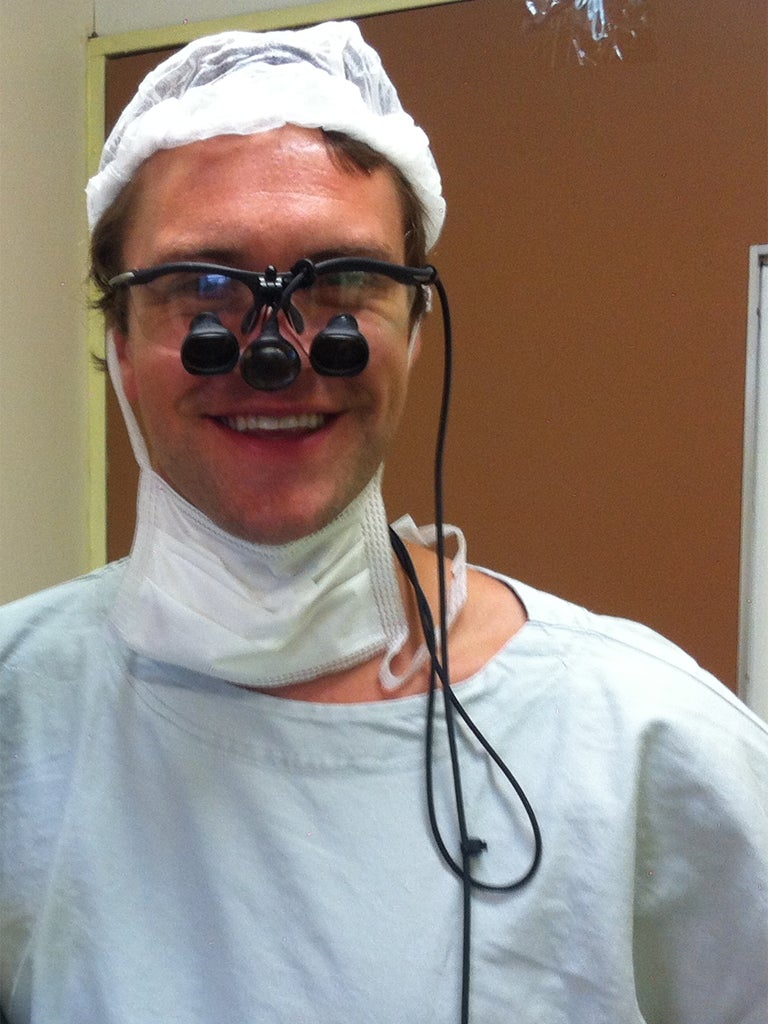What's it like to study... Medicine
Fred Clough has a first in medical sciences from Oxford and clinical medicine from UCL

Medicine isn’t quite like other degrees, so forget two hours of contact time per week and one essay per term. Learning begins at the atomic level – about the biophysics and chemistry in year one, and ends with the macroscopic – a real person who is sick and needs treatment, stat. A medical student's head is filled with dogma from the start - that you cannot and will not be judged by the standards of others – whether that be academic endeavor, constraints on your time, or professional behaviour.
The first three years were spent with formaldehyde-filled anatomy lessons, cell biology and pathology labs (what happens when the body goes wrong) and lectures. As a student at Oxford I also had tutorials with the college as well as the med school teaching. This included one essay per week for each of the three or four tutors looking after us.
Whatever you have heard about Oxford and Cambridge is probably true. I became accustomed to having 'tutes' in my professor’s rooms at college, an oak-panelled boudoir complete with mauve chaise-longue. We would debate the pharmacokinetic properties of the perfect medication, or discuss the topic of an essay 'why is the heart genius'. At one end of the room was a stuffed puffer-fish, while the mantelpiece opposite was home to an enlarged model of the drosophilia fruit fly. And sometimes we would just play chess.
In my final year at Oxford, I studied for an extra degree in physiological Sciences. I was able to pursue areas of interest - in my case neuroscience - and take supplementary modules in the history of medicine and pharmacology. Most universities now offer a BSc of some sort, and for most doctors these days it is a given that you are to engage in academic research - if only to buffer you CV. However, I felt incredibly lucky that I was able to work in labs, rubbing shoulders with Nobel Prize winners who would always be more than happy to answer the most simple of questions in the corridor, or reply to an email that requested more information about their field.
Notwithstanding the perks of academia at an institution such as Oxford, there was also plenty of time to enjoy the idiosyncracies that Oxford has to offer besides your degree; grand halls and balls, quirky societies, sport at Iffley road and punting on the Cherwell.
The aim of the first three years is to gain a good foundation in the basic sciences. Doctors trained from the more academic-leaning institutions are expected to reason their way out of a difficult spot when at four in the morning, when a patient has just had a crash and no one seems to understand why! I think that most medical graduates in the UK are fairly similar in capability, but each university certainly has a very different educational ethos.
As a clinical student, your timetable dramatically changes. Ragged hair dos, stubble and trainers are no longer tolerated as you will spend every day with patients as a functioning part of the hospital’s innards. On average, four weeks is spent rotating around each of the different specialties across the three years including surgery, medicine, dermatology, gynaecology, neurology and many more.
I moved to UCL in London for clinics, and some of my most memorable experiences included delivering babies, visiting a prison psychiatric ward of (surprising amenable) convicted criminals, my medical elective in Sao Paulo doing ophthalmology and plastics and the frightfully common occurrence of being grilled by eminent but gnarled old consultants who still haunt the wards 20 years post retirement. Oh, and the exams. I have to mention the exams. And there will be many throughout your career. For four weeks you work hard, stop having fun, do the exams, and then there's another four weeks...
Now, as a doctor working in London, who is expected to do certain jobs by certain times, I appreciate that as a medical student I really was very privileged. As a student you can walk into any ward or any operating theatre and observe, learn, ask questions and speak to patients, whereas practising doctors are all rushed off of their feet. Students often have much more time to really delve deep into a patient’s condition, and often can even inform the team of a very important detail that has been overlooked. The culture within medicine is such that everyone's input is respected and the team is hugely valued. Everyone teaches each other at whatever level, and now I take an active role in tutoring A-level students to try for top medical students like Oxford.
Medicine is a very time-intensive degree and one that will increasingly be a huge financial ask for students given the rise in tuition and downward spiral in doctors' pay. However, being thrown in at the deep end of some of the most challenging scenarios I have ever been in, and being confronted with patients from all of the extremes that life has to offer continues to inspire me and reward me on a daily basis.
Fred Clough has a first in medical sciences from Oxford and a BMBCh in clinical medicine from UCL.
Subscribe to Independent Premium to bookmark this article
Want to bookmark your favourite articles and stories to read or reference later? Start your Independent Premium subscription today.

Join our commenting forum
Join thought-provoking conversations, follow other Independent readers and see their replies